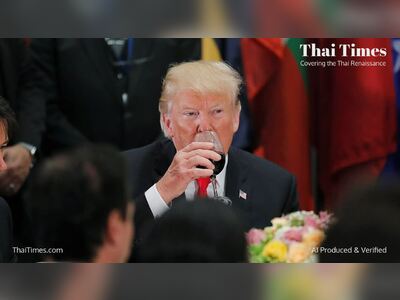Thailand Expands EV Incentives Amid Employment Surge and Localization Goals
Thailand's Board of Investment reports 9,600 new jobs from Chinese EV makers as it seeks to increase domestic production and sustain industry growth
The Thailand Board of Investment (BoI) has announced plans to further accelerate the country's electric vehicle (EV) sector by expanding incentive packages aimed at boosting employment and enhancing local manufacturing capabilities.
As of mid-2025, EV manufacturers operating in Thailand have created approximately 9,600 jobs, according to the BoI.
Most of these roles are occupied by Thai nationals, employed as engineers, technicians, and executives.
The majority of hiring stems from Chinese automakers that have established production facilities in Thailand, including BYD, MG, GWM, GAC Aion, and Changan.
Among them, BYD has recorded the highest employment figure with around 5,900 workers and plans to increase this number to 8,000 by 2026.
EV companies currently operating in Thailand have been sourcing between 40% and 60% of their vehicle components domestically.
BoI Secretary-General Narit Therdsteerasukdi stated that manufacturers plan to raise this to approximately 90% in the coming years, in line with government efforts to transform Thailand into a regional EV production hub.
The government’s policy target, dubbed "30@30," aims for electric vehicles to account for at least 30% of the country’s total automobile production by 2030.
This includes goals of manufacturing 725,000 battery electric vehicles (BEVs), 675,000 electric motorcycles, and 34,000 electric buses and trucks annually by that year.
Incentive measures under Thailand’s EV3.0 scheme, launched in 2022, include tax reductions and subsidies for companies that commit to local EV production.
These incentives initially supported imports to stimulate early market adoption, with firms expected to begin domestic assembly from 2024 onward.
However, slowdowns in the domestic automotive market have led several firms to fall short of meeting these production commitments.
As a result, EV manufacturers are urging the Thai government to maintain subsidies and consider canceling penalties for non-compliance with production targets.
Industry representatives attribute the shortfall to sluggish vehicle sales across Thailand over the past year, despite overall growth in EV registrations.
The BoI has indicated it is evaluating additional policy tools to support industry resilience, sustain employment, and encourage greater localization of EV parts manufacturing.
Chinese manufacturers currently lead new EV registrations in Thailand, with BYD, GWM, and MG securing a significant share of the passenger vehicle market.
Thailand continues to position itself as a central EV manufacturing hub in Southeast Asia, leveraging a combination of investment incentives, skilled labor, and strategic supply chain integration to attract global and regional players.
The expansion of local part production and workforce development is expected to play a critical role in meeting long-term policy objectives and strengthening the domestic EV ecosystem.
As of mid-2025, EV manufacturers operating in Thailand have created approximately 9,600 jobs, according to the BoI.
Most of these roles are occupied by Thai nationals, employed as engineers, technicians, and executives.
The majority of hiring stems from Chinese automakers that have established production facilities in Thailand, including BYD, MG, GWM, GAC Aion, and Changan.
Among them, BYD has recorded the highest employment figure with around 5,900 workers and plans to increase this number to 8,000 by 2026.
EV companies currently operating in Thailand have been sourcing between 40% and 60% of their vehicle components domestically.
BoI Secretary-General Narit Therdsteerasukdi stated that manufacturers plan to raise this to approximately 90% in the coming years, in line with government efforts to transform Thailand into a regional EV production hub.
The government’s policy target, dubbed "30@30," aims for electric vehicles to account for at least 30% of the country’s total automobile production by 2030.
This includes goals of manufacturing 725,000 battery electric vehicles (BEVs), 675,000 electric motorcycles, and 34,000 electric buses and trucks annually by that year.
Incentive measures under Thailand’s EV3.0 scheme, launched in 2022, include tax reductions and subsidies for companies that commit to local EV production.
These incentives initially supported imports to stimulate early market adoption, with firms expected to begin domestic assembly from 2024 onward.
However, slowdowns in the domestic automotive market have led several firms to fall short of meeting these production commitments.
As a result, EV manufacturers are urging the Thai government to maintain subsidies and consider canceling penalties for non-compliance with production targets.
Industry representatives attribute the shortfall to sluggish vehicle sales across Thailand over the past year, despite overall growth in EV registrations.
The BoI has indicated it is evaluating additional policy tools to support industry resilience, sustain employment, and encourage greater localization of EV parts manufacturing.
Chinese manufacturers currently lead new EV registrations in Thailand, with BYD, GWM, and MG securing a significant share of the passenger vehicle market.
Thailand continues to position itself as a central EV manufacturing hub in Southeast Asia, leveraging a combination of investment incentives, skilled labor, and strategic supply chain integration to attract global and regional players.
The expansion of local part production and workforce development is expected to play a critical role in meeting long-term policy objectives and strengthening the domestic EV ecosystem.











